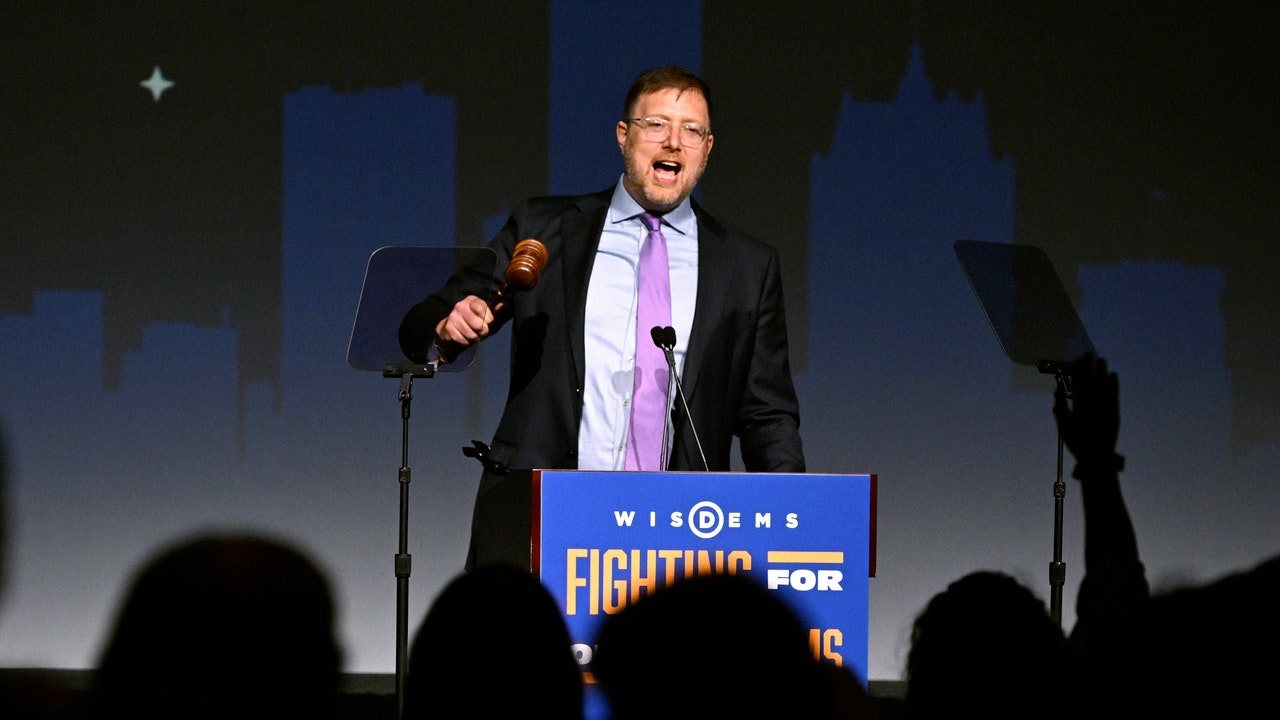
Over the past five years, Ben Wikler has helped pry Wisconsin from Republican dominance at the state level. Under his leadership as chair of the state party, Democrats have maintained the governorship, made gains in the state legislature, broken conservative control of the state Supreme Court, and undone the rigged maps that seemed—at one time—to practically guarantee a GOP stranglehold on the state’s politics.
Donald Trump won back the Dairy State this year after losing it in 2020. But Wikler still counts his state as one of the silver linings for Democrats in a tough election cycle: Though the Republican won out, Kamala Harris won more votes there than Joe Biden did four years earlier.
Wikler, 43, is now running to head the Democratic National Committee—at a time of low morale, disillusionment with current leadership, and uncertainty as to where it goes from here. How would he lead the Democrats out of the political wilderness? “We have to do a lot of building,” Wikler told me, in a conversation that has been edited for clarity and length.
“This is a time,” he said, “that calls on us to be really clear about what our values are.”
Vanity Fair: Trump’s victory, particularly in the popular vote, came as a shock to some who saw a lot of momentum on Harris’s side, including some really encouraging polling, and stumbles by Trump. But Democrats, especially within the Harris campaign, have indicated in some autopsies that the result wasn’t all that surprising and maybe even was inevitable, given the numbers they were seeing and the headwinds they were facing. What was your reaction on election night? Were you caught off guard, or did you have a sense that this was where things might be headed?
Ben Wikler: Before the election, reporters asked what kept me up at night. And my answer was always that there might be Trump voters out there who were not in our model and were not in our polling who nonetheless turned out. And that is what happened. Our sense—in Wisconsin specifically—was that there was enormous momentum on our side. And that was real. We actually turned out more voters for Harris than we did for Biden. And yet the surge on the GOP side overtopped Harris’s enormous showing.
One thing that was striking was that a lot of the more than 50,000 people who turned out for Trump didn’t vote in the Senate race, and so we wound up with Tammy Baldwin winning reelection at the same time Trump won our state because of Republicans who didn’t fill out the full ballot. And I think that speaks to the impact of having a coordinated campaign in Wisconsin, where we were working to elect Democrats up and down the ticket.
I felt, even when the polls closed, that we were gonna win. The first numbers that we saw coming in, where we were adding votes in county after county, felt pretty good. But there were enough additional Trump voters showing up in place after place that we lost by less than one percentage point in Wisconsin.
So what went wrong? Obviously, you don’t lose an election for just one reason. But what do you see as some of the big factors that led to Trump winning—again, not just the Electoral College, as he did in 2016, but a narrow popular-vote victory?
What was striking is that we lost even more in places where neither side campaigned than we did in the places where both sides campaigned. And the number that just jumps out and smacks me in the face is that Democrats lost the majority of voters who make less than $50,000 a year for the first time in my lifetime. I think the experience that people have of financial support that they got during the pandemic slipping away, and then prices going up, created—especially for a lot of working-class voters around the country, across race and ethnicity and geography—a sense that the economy wasn’t working for them. And Democrats kept saying the economy was great, so they voted for change. Where Harris did campaign the most, her message that we needed to bring prices down, and support working people, helped to blunt that erosion. But it’s clear that if you put some of the different data side by side, you see the people who felt like they were struggling economically, said they were hurt most by inflation, and were paying the least attention to the news and hearing the least from the campaigns, were the people we lost the most. And that tells us that it’s both the lived economic reality that a lot of these voters experienced and the fact that we weren’t communicating in places that actually reach them.




